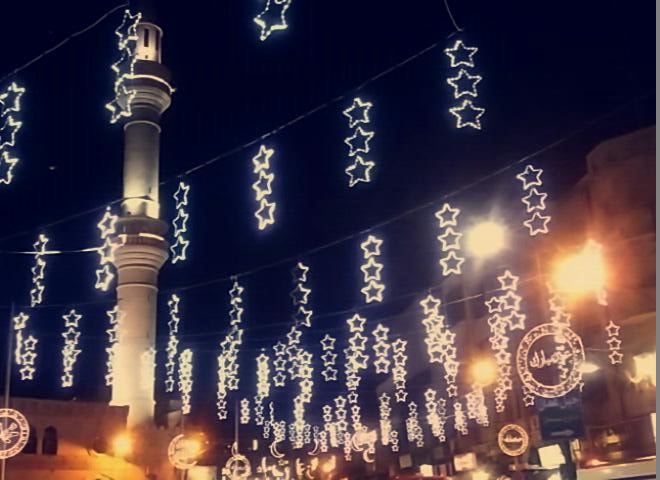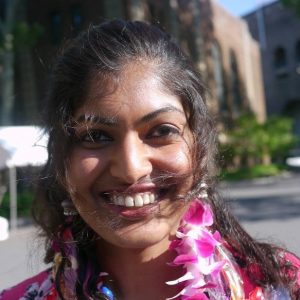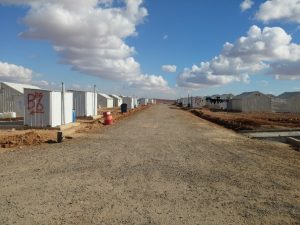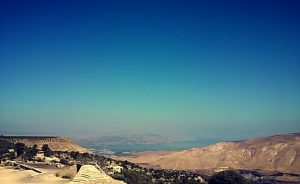This is the next in a series of posts by recipients of the Career Services Summer Funding Grant. We’ve asked funding recipients to reflect on their summer experiences and talk about the industries in which they’ve been spending their summer. You can read the entire series here.
This entry is by Saagarika Thanvi, GEN ’16

 Hearing the call to prayer just before sunset. Watching people gather at the iftar table to break their fast. Enjoying the ambiance of Ramadan nights. Jordan opened my eyes to a new culture, a new way of living, and a new way to engage with everyday realities of people. I worked with UNICEF Jordan this past summer for the WASH (Water, Sanitation and Hygiene) Section related to understanding the performance and efficiency of the wastewater treatment facilities used at the Za’atari and Azaraq refugee camps in Jordan. My work exposed me first hand to the consequences of war and to the importance of supporting those people who need help the most. Watching people living in caravans in refugee camps having fled bombs and chemical weapons is heart-breaking. It was a surreal feeling being so close to the war torn countries of Syria and Iraq yet feeling sheltered in the safe haven of Jordan.
Hearing the call to prayer just before sunset. Watching people gather at the iftar table to break their fast. Enjoying the ambiance of Ramadan nights. Jordan opened my eyes to a new culture, a new way of living, and a new way to engage with everyday realities of people. I worked with UNICEF Jordan this past summer for the WASH (Water, Sanitation and Hygiene) Section related to understanding the performance and efficiency of the wastewater treatment facilities used at the Za’atari and Azaraq refugee camps in Jordan. My work exposed me first hand to the consequences of war and to the importance of supporting those people who need help the most. Watching people living in caravans in refugee camps having fled bombs and chemical weapons is heart-breaking. It was a surreal feeling being so close to the war torn countries of Syria and Iraq yet feeling sheltered in the safe haven of Jordan.
It was a new experience for me to work in WASH, but this past summer I learned so much more from my colleagues through this summer experience than what I was previously exposed to. It was a pleasure to come into the UNICEF office every day: I was challenged to use my skills as an engineer in a real life situation, but at the same time I had this unique opportunity of working with and learning from international professionals.

When I use the restroom on a daily basis, I take it for granted that everything will be taken care of. I do not have to worry about the amount of water I consume. Or the water quality that is released back into the environment. However, this summer I realized the importance of water – the most essential ingredient for life. With tens of thousands of people living in small spaces and with only a limited water supply of about 35-40 litres per person per day provided, the challenges faced in treating the wastewater is enormous. Yet regardless of the situation, it is important to take into consideration the water quality because of the high potential for diseases to be spread through the water. However, the most important lesson that I learnt during these past weeks is that wastewater need not be seen as a ‘waste’ but as a resource. Wastewater can be easily reused for agricultural purposes and it can be used as a potential energy source through the generation of biogas.

My summer in Jordan made the world seem huge because of the sheer beauty of the earth I was exposed to, and through the amazing scenery that stretched before my eyes. This summer also made the world seem small because of the common human bond that demands of us to be open and loving to all especially to those who are the most vulnerable. I realised this summer the importance of doing my part to engage with communities that need to be supported because of circumstances that are not of their choice. It is essential to use the skills we have learned to make a positive difference in the world around us. Experiencing Ramadan in Jordan taught me the importance of human communities coming together in celebration of a common faith. Seeing the realities of refugees exposed me to the pain and suffering people have had to face due to selfish battles fought out of hate. Love is always greater than hate, and in a world with so much difficulty, we need to encourage more openness to learn about other people and make our world safe and just for all children and people to live freely.

